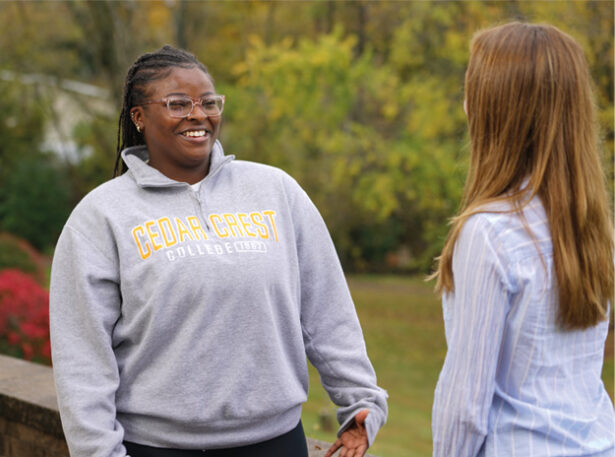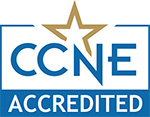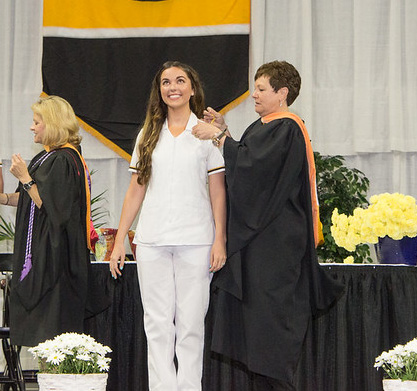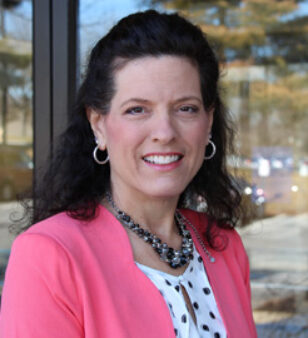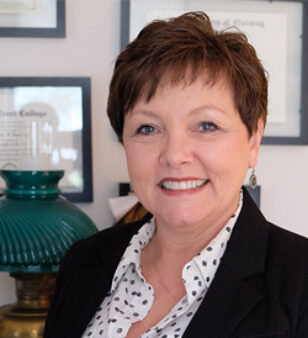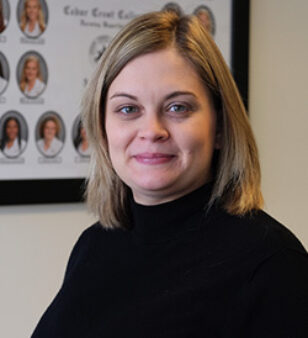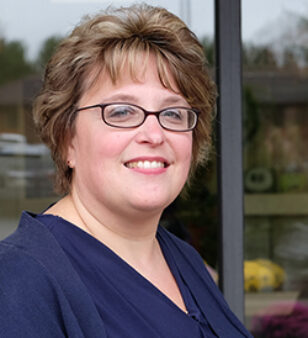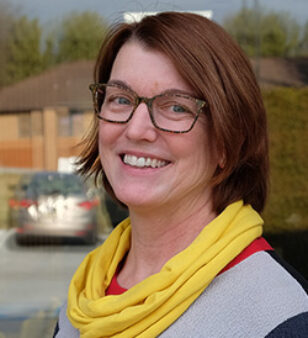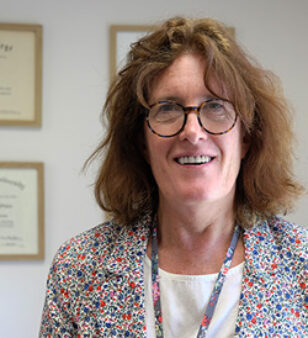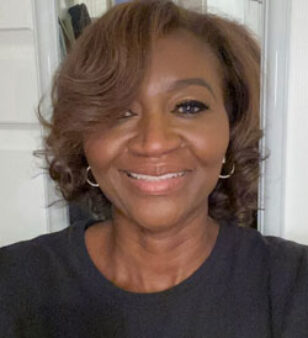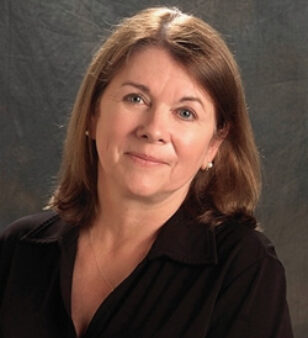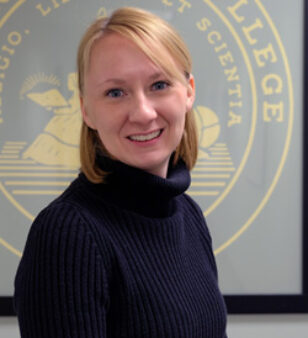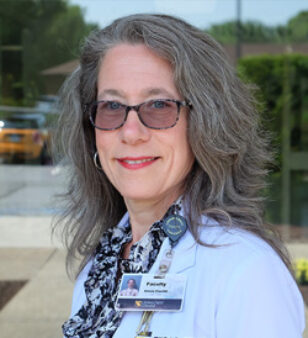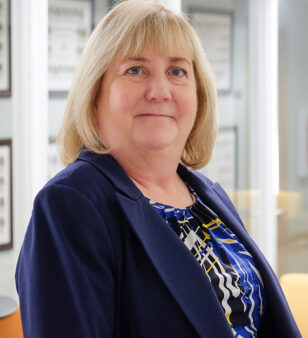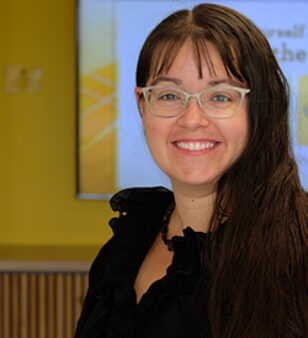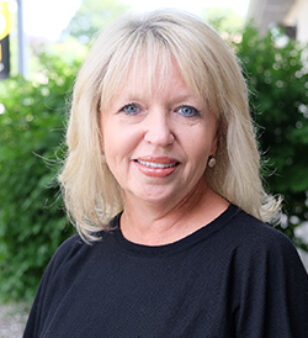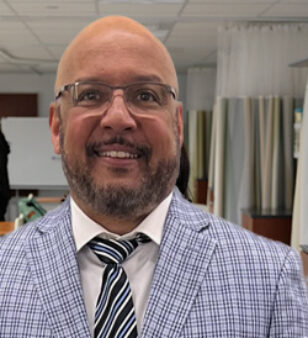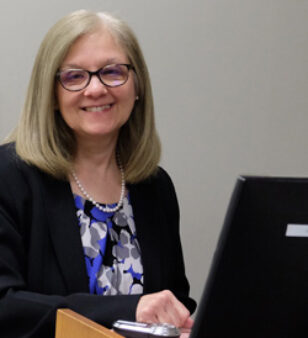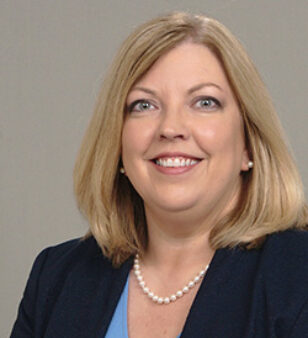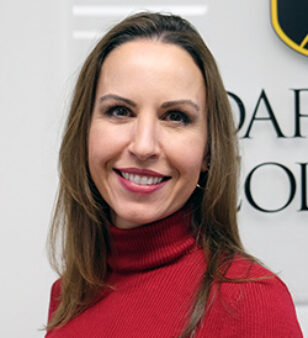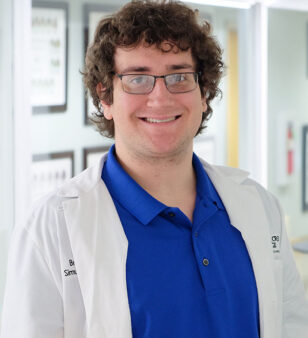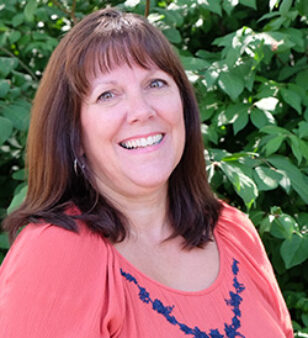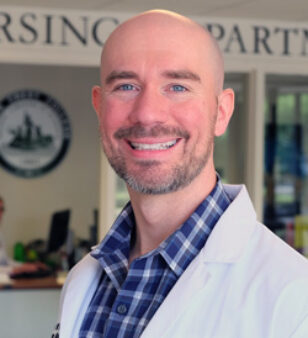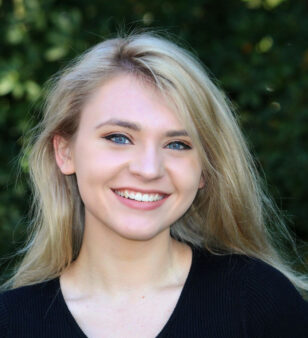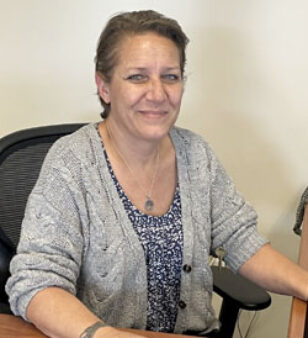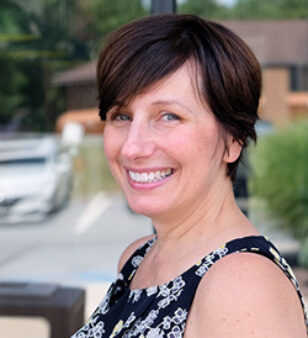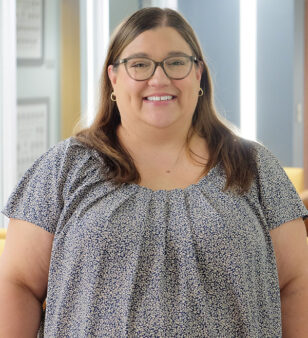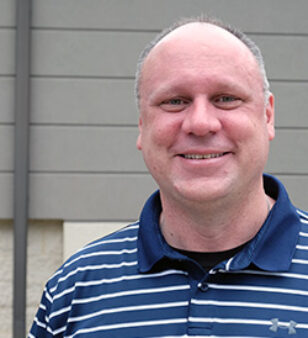Graduate Nursing Core Courses
MSN 510 Conceptual & Theoretical Foundations for Nursing (3 credits)
This course explores the epistemology of nursing science, including historical perspectives, current concepts pertinent to nursing, and impact of grand and mid-range nursing theories on the future of nursing practice.
MSN 512 Research for Evidence-based Nursing Practice (3 credits)
This course is designed to develop the role of the professional graduate student as a competent research consumer. Students develop the skills needed to identify and critically appraise scientific evidence to evaluate the quality and applicability to clinical practice. The course content includes an overview of research concepts, ethical issues, literature searches and reviews, quantitative and qualitative research methods and designs, data collection, data analysis and interpretation techniques. Students gain an understanding of the research process and the role of research in evidence-based practice. Basic statistics will be reviewed.
MSN 514 Informatics & Technology in Nursing (3 credits)
This course explores the impact of informatics upon evidence-based practice, leadership, management, and education. Emphasis is placed on how informatics supports evidence-based decision-making, and on how informatics and technology impact the delivery of nursing and health care.
MSN 516 Issues & Trends Relevant to Nursing (3 credits)
This course focuses and synthesizes the nonclinical yet critical content necessary to practice safely in a competent professional nursing role. Topics explored include current international, national, state, and local trends affecting nursing such as health care/illness care financing, bioterrorism, Healthy People 2020, professional credentialing and scope of practice, ethical decision making, bioethical dilemmas, federal and state laws, nursing’s professional organizations, and issues of interest based on nursing specialties. Additionally, the course provides information on liability, and coding, and models of health care delivery. Contracts, reimbursement, quality and safety initiatives will be addressed. Overview of the Consensus Model, preparing for national certification, and applying for licensure and prescribing privileges at the state level will be addressed.
MSN 520 Vulnerable Populations: Nursing Perspectives (3 credits)
The elimination of health disparities has been identified as an area of research emphasis by the National Institute of Nursing Research. This course examines health determinants and health disparities within the United States as well as in the global community. The student will examine health disparities and the burden of disease within social, cultural, political, economic, and environmental contexts using a systematic, multidisciplinary approach.
Graduate Nursing Direct Care Courses
MSN 550 Physiology and Pathophysiology for Advanced Practice Nursing Across the Lifespan
(3 credits)
This course examines selected physiologic and pathophysiological conditions encountered in clinical practice across the lifespan of clients. Emphasis is placed on regulatory and compensatory mechanisms as they relate to commonly occurring diseases. Concepts of cellular, molecular and genetic, physiology, immunology, neurophysiology, endocrine/reproductive, cardiovascular, blood, pulmonary, renal, and digestive physiology will be examined.
MSN 551 Advanced Health & Physical Assessment Across the Lifespan
(3 credits: 2 didactic, 1 online lab [56 clock hours])
This course will provide students with a systematic method of diagnostic reasoning, clinical decision making necessary to conduct an advanced health assessment for clients across the lifespan. Advanced techniques in interviewing, history taking, physical examination, health screening, ordering, performing, and interpreting laboratory, radiographic, and other diagnostic data, and record keeping is included. The course content emphasizes bio-psycho-social and cultural assessment utilizing appropriate research findings. Students will complete 56 clock hours of online laboratory.
MSN 552 Pharmacological Principles of Clinical Therapeutics Across the Lifespan (3 credits)
This course provides the student with knowledge and skills to assess, diagnose, and pharmacologically manage client’s common health problems in a safe, high quality, cost-effective manner. Emphasis is on the analysis of advanced pharmacological and pharmacokinetic principles and the development of therapeutic decision-making in drug selection of the client based on health conditions, individual variations, and economic and cultural concerns. Drugs most commonly used in advanced obstetric/gynecologic, neonatal, pediatric, adult, and geriatric nursing practice are stressed. Analysis of selected health problems is integrated with pharmacological and evidence-based practice principles.
Graduate Nurse Educator Specialty Courses
MSN 531 Curricula in Nursing Education (3 credits)
This course is designed to introduce the student to traditional and contemporary considerations for curriculum planning and design as applied to nursing education. The primary focus is the process of curriculum development and program evaluation. The faculty role in higher education is explored. Historical, theoretical, legal and ethical issues related to curricula planning will be examined.
MSN 532 Nurse Educator Practicum I (4 credits:3 didactic, 1 clinical [56 clock hours])
The focus of the course is the nurse educator’s integration of advanced-nursing knowledge to promote and improve health in a focused practice setting. Recognizing that the content being taught needs to be current, supported by theory, and evidence-based, this course prepares nurse educators to motivate change in learners. Effective teaching strategies and materials to maximize learning in a focused practice settings are emphasized. Measurement and evaluation techniques that are essential to effective teaching are explored. The nurse educator is considered a direct-care role and as such all students in the nurse educator track must complete 56 hours (1 credit) of direct-care clinical practice experiences in this course. Prerequisites: NUR 531.
MSN 535 Nurse Educator Practicum II (6 credits:3 didactic, 3 clinical [168 clock hours])
This course will provide students the opportunity to apply concepts and develop skills in curriculum development, classroom and clinical teaching, and evaluation methods in an educator role within the student’s area of specialization. The student can choose from a variety of opportunities in clinical settings with patients or staff nurses or with nurse educators in clinical or academic settings. Students will gain experience interfacing with faculty, administrators, and support service personnel in the institution(s) of their choice. Students will complete 168 hours (3 credits) of clinical experience in an educator role and 42 hours (3 credits) in classroom seminars. Prerequisites: NUR 510, 512, 514, 516, 520, 522, 531, 533.
Graduate Nurse Administrator Specialty Courses
MSN 541 Organization and Structure of Nursing Care Delivery Systems (3 credits)
This course will introduce the student to leadership and management theory, the roles of the nurse administrator, the organizational structure of health care delivery systems, care delivery models, the planning process, program evaluation methods, and the effects of national and international health care policy on institutions.
MSN 543 Resources for the Delivery of Nursing (4 credits: 3 didactic, 1 clinical [56 clock hours])
This course will introduce students to health care economics, budgeting and financial management, health care reimbursement, business plans and grants, and development and management of human resources. Students will complete 56 hours (1 credit) of clinical experience in an administrator role and 42 hours (3 credits) in classroom seminars.
Prerequisites: NUR 541.
MSN 545 Nurse Administrator Practicum (6 credits: 3 didactic, 3 clinical [168 clock hours])
This course will introduce students to professional ethics, health care laws and regulations, collective bargaining, institutional and individual credentialing, professional and institutional liability, contract administration, and the role of politics and power in nursing and health care and self-reflective management. Students will have the opportunity to apply concepts learned in NUR 541 and 543 in a managerial role within the student’s area of clinical specialization. Students will complete 168 hours (3 credits) of clinical experience in an administrator role and 42 hours (3 credits) in classroom seminars.
Prerequisites: NUR 543.
MSN Family/Individual Across the Lifespan Nurse Practitioner Specialty Courses
MSN 600 Primary Care of the Family & Individual Care Across the Lifespan I – Women & Families (3 credits)
This is the first clinical course in a four clinical course sequence. The course focuses on health promotion, health maintenance management, and risk reduction strategies for women and families during childbearing years. Emphasis is on assessment of health states, nursing and medical management of common health problems, health education, health promotion, and disease prevention common to individuals and families of childbearing age. Community health, cultural competency, genetics, and evidence-based practice concepts are integrated into the course. Selected nursing theories, family systems theory, teaching and learning theories, behavior change theory, principles of counseling and therapeutic communication essential to planning, implementing, and evaluating nursing and medical management of health, wellness, and therapeutic regimens for the individual and family of childbearing age within the community setting are emphasized.
Students must register for the co-requisite clinical practicum that includes a clinical experience focusing on well-child health, women’s health and wellness, childbearing concerns, occupational health concerns common to women, acute episodic illnesses, and chronic illnesses commonly encountered in primary care health care settings.
MSN 601 Clinical Practicum Primary Care of the Family & Individual Care Across the Lifespan I – Women & Families (2 credits)
Students are expected to complete 112 clock hours (8 hours/week) of clinical practicum over the course of the term. Students will practice and hone physical assessment, provide primary care health services including health promotion, disease prevention, health education and counseling and nursing and medical management of common acute and episodic, health problems to individuals and/or families of childbearing age within a community setting under the guidance and supervision of a Cedar Crest College approved preceptor in a primary care setting.
MSN 602 Primary Care of the Family & Individual Care Across the Lifespan II – Infants, Children & Adolescents (3 credits)
This is the second clinical course in a four clinical course sequence. This course focuses on providing culturally competent, comprehensive primary health care to infants, children and adolescents. There is an emphasis on assessment of health states, nursing and medical management of common health problems, health education, health promotion and risk/disease prevention common to infants, children and adolescents in the context of the family. Community health and concepts of cultural, as well as ethical competencies are integrated throughout the course. This course will continue to build on the application of family theory principals in communication and care planning, as introduced and emphasized in the previous coursework. The student will describe, analyze, and synthesize the plan of care in regard to the client, nurse, and health care systems along with principles of therapeutic communication.
MSN 603 Clinical Practicum Primary Care of the Family & Individual Care Across the Lifespan II – Infants, Children & Adolescents (2 credits)
Students are expected to complete 112 clock hours (9.5 hours/week) of clinical practicum over course of the term. Students will practice and hone physical assessment skills and will engage in planning, implementing, and evaluating common health concerns of infants, children, and adolescents encountered in the community primary care setting under the guidance and supervision of a Cedar Crest College approved preceptor in a primary care setting.
MSN 604 Primary Care of the Family & Individual Care Across the Lifespan III – Adults & Older Adults (3 credits)
This is the third primary care course in a four course sequence. This course focuses on providing comprehensive and culturally responsive primary care to adults, older adults, and maturing families across the lifespan within the context of the community. The student will build on knowledge and skills obtained in previous coursework to expand knowledge of medical management of health states, common acute health problems, health education, health promotion, genetics and genomics, and disease prevention common to adults, older adults, and maturing families. The student will examine the use of evidence and evidence based practice principles in decision making and concepts of patient resiliency and vulnerability will be incorporated throughout the course. Community health and concepts of cultural, as well as ethical competencies are also integrated throughout the course.
MSN 605 Clinical Practicum Primary Care of the Family & Individual Care Across the Lifespan III – Adults & Older Adults (4 credits)
Students are expected to complete 224 clock hours (16 hours/week) of clinical over the course of the term. Students will practice physical assessment, diagnosis and management of health concerns common to adults, older adults, and maturing families with a focus on acute health problems commonly encountered in the primary care setting. The student will describe, analyze, and synthesize the plan of care in regard to the patient, nurse, and health care system.
MSN 606 Primary Care of the Family & Individual Care Across the Lifespan IV – Adults & Older Adults (3 credits)
This is the fourth primary care course in a four course sequence. This course builds on previous coursework and facilitates the student as an emerging provider of culturally-responsive comprehensive primary health care to individuals and families within the context of the community. The student applies knowledge and skills that promote their role as an emerging provider managing various health states, common chronic health problems, health education, health promotion, genetics and genomics, and disease prevention common to adults and older adults. The student will examine the use of evidence in decision making. Nursing theories as well as selected theories from the behavioral and physical sciences are incorporated into practice.
MSN 607 Clinical Practicum Primary Care of the Family & Individual Care Across the Lifespan IV – Adults & Older Adults (5 credits)
Students are expected to complete 280 clock hours (20 hours/week) of clinical over the course of the term. Students will practice physical assessment, diagnosis and management of health concerns common to the maturing family with a focus on chronic illnesses commonly encountered in the primary care setting. The student will describe, analyze, and synthesize the plan of care in regard to the patient, nurse, and health care system.
MSN Adult Gerontology Acute Care Nurse Practitioner Specialty Courses
MSN 620 Advanced Health Assessment & Clinical Reasoning for the Adult-Gerontology Acute Care Nurse Practitioner(2 credits didactic)
This course builds on knowledge of advanced health assessment with a focus on acute and/or chronic medical conditions commonly seen in the young adult to geriatric populations in the acute care practice setting. The course emphasizes acquisition and analysis of relevant data for the development of a comprehensive, culturally competent, holistic assessment. A major focus of the course is the symptom/health problem assessment, diagnostic reasoning, selection and interpretation of screening and diagnostic tests to formulate primary and differential diagnoses and documentation.
MSN 621 Clinical Practicum for Advanced Health Assessment & Clinical Reasoning for the Adult-Gerontology Acute Care Nurse Practitioner (1 credit clinical)
Adult gerontology acute care nurse practitioner (AGACNP) students use an advanced practice nursing framework to obtain holistic health histories and perform physical examinations in this course. The patient population is young adults to geriatrics with complex health problems in a variety of acute and chronic care settings. Principles of diagnostic reasoning will be used to acquire and analyze relevant subjective and objective data, develop medical diagnoses, and an evidence-based plan of care for patients in the clinical setting. Students complete 56 hours of clinical practice.
MSN 610 Adult-Gerontology Diagnosis & Management of Chronic & Acute Illness I (3 credits)
This course introduces the students to the theoretical and clinical competencies and principles of diagnostic and treatment strategies utilized in acute/critical care settings by the Adult-Gerontology Acute Care Nurse Practitioner. The course builds on previous coursework and integrates an evidence based practice framework to support diagnosis and management of the acute and chronically ill patient across the continuum of care, from illness to wellness.
The focus is in health promotion, disease prevention, diagnosis and management of common illnesses seen in the acute care setting affecting the young adult, adult and older adult populations. In addition, this course emphasizes collaborative partnership development between patients, their families and inter-professional teams.
MSN 611 Clinical Practicum Adult-Gerontology Diagnosis & Management of Chronic & Acute Illness I (3 credits) – 168 clock hours
This course is the clinical practicum for Adult-Gerontology Acute Diagnosis & Management of Chronic & Acute Illness I. The clinical portion of the course allows the student to apply theoretical, scientific and evidence-based clinical knowledge in a supervised practicum to manage patients across the adult-older adult age spectrum, including the frail older adult. Students are expected to complete 168 clock hours of clinical (14 hours/week) under the guidance and supervision of a Cedar Crest College approved preceptor in an acute care setting.
MSN 612 Adult-Gerontology Diagnosis & Management of Chronic & Acute Illness-II (3 credits)
This is the second of three courses designed to help students in the acquisition of concepts and knowledge in the care of the acute, critical and chronically ill adult. The focus is on evidence-based clinical decision-making, to support diagnosis and management of the acute, critical and chronically ill patient across the continuum of care, from illness to wellness, and across the adult-older adult age spectrum, including care of the frail older adult. The course emphasizes the acquisition of interprofessional decision-making and management skills.
MSN 613 Clinical Practicum Adult-Gerontology Diagnosis & Management of Chronic & Acute Illness-II (4 credits) – 224 clock hours
This is the clinical portion of Adult-Gerontology Diagnosis and Management of Chronic and Acute Illness-II. This clinical practicum allows the student to apply theoretical, scientific and evidence-based clinical knowledge in a supervised practicum to manage patients across the adult-older adult age spectrum, including the frail older adult. Students are expected to complete 224 clock hours (16 hours/week) of clinical under the guidance and supervision of a Cedar Crest College approved preceptor in an acute care setting.
MSN 614 Adult-Gerontology, Traumatic Injury & Emergency Illness Diagnosis & Management (1 credit)
This course focuses on evidence-based clinical decision-making, in the diagnosis and management of traumatic injury and emergent conditions in patients across the continuum of care, from illness to wellness, and across the adult-older adult age spectrum, including care of the frail older adult.
MSN 615 Clinical Residency (5 credits) – 280 clock hours (20 hours/week)
The Clinical Residency allows students to build and integrate knowledge for advanced specialty practice at a high level of complexity. The Residency consists of individualized advanced instruction and clinical practice working with acutely and/or critically ill adults in an acute care setting. This intensive clinical and instructional experience will assist students to hone diagnostic and management skills, and synthesize knowledge and competencies obtained in prior course work.
Doctor of Nursing Practice Courses
DNP 801 Methods for Scholarly Inquiry (3 credits)
This course provides an emphasis on a scholarly approach to problem solving based on critical appraisal, synthesis and application of research evidence. Foundational principles in research methodologies are detailed to provide a systematic structure for the purpose of obtaining and evaluating evidence for potential implementation in clinical practice environments. Topics include: Evidence-based practice, quantitative and qualitative research methods, the use of mixed-methods, human subjects considerations, and ethical issues in scholarly inquiry. Finally, dissemination of clinical practice scholarship will be discussed as a critical element of DNP practice.
DNP 802 Biostatistics for Evidence-based Practice (3 credits)
This course focuses on the understanding of biostatistics for application to nursing and evidence-based practice. Emphasis is placed on the interpretation of and appraisal of data analyses for the selection and use of best evidence for making practical conclusions about empirical data.
DNP 803 Theories of Leadership & Organization (3 credits)
This course focuses on the analysis of contemporary organizational theories as they apply to complex healthcare systems. Application of theory to organizational analysis and decision making is emphasized. Concepts of effective leadership include: systems thinking, organizational culture, communication, resource utilization, ethics, and change theories necessary for leading cost-effective quality and safety improvements within healthcare organizations in an inter-professional environment.
DNP 804 Health Policy, Economics, & Finance (3 credits)
This course provides students with an overview of the US health care policy, including analysis of: the political, institutional, cultural and economic environments in which policy is formed. It also addresses how policy is created and focuses on select current issues in health policy. Students will be prepared to discuss the complexities of health policy development and implementation, historical evolution and themes in the U.S. healthcare system. Emphasis will be placed on: health care costs and financing, public health, health care quality, and Medicare and long term care. Global, national, state, and local systems of financing health care will be compared.
DNP 805 Foundation for Transformation: Translating Evidence into Practice (3 credits)
The science of dissemination and implementation (D&I) seeks to address the gap between evidence and practice by exploring how to ensure that evidence-based innovations are effectively delivered within clinical and community practice. Dissemination science is the study of how evidence-based innovations can best be communicated to potential adopters while implementation science is the study of what happens after adoption occurs, particularly in organizational settings. In this course, students will explore D&I theories/frameworks, methodologies, ethical issues and organizational factors associated with moving evidence-based innovations into practice across different healthcare settings.
DNP 806 Evaluation Methods for Safety & Quality Improvement (3 credits)
This course provides students with an overview and application of principles and methods for (a) assessing safety and quality in health care environments, and (b) systematically evaluating the processes and outcomes of interventions to manage safety and quality in these environments. Topics include the conceptualization, planning, and ex-ante or before the event analysis of evaluation studies; principles to assure integrity of evaluation research studies; assessment of processes and measurement of outcomes; evaluation methodologies (randomized field experiments; quasi-experimental designs; survey methods; performance measurement; process analysis; benchmarking; hierarchical and integrated methods). Included also are specific methods to assess effects and efficiency (cost-benefit, cost-efficiency). The course concludes with specialized communication methods including score cards and benchmark reports.
DNP 850 DNP Project I (4 credits: 1 didactic credit, 3 practicum credits)
This is the first of two sequential DNP practicum courses. This course combines practicum experiences with scholarly activities to provide in-depth learning. The practicum focuses on comprehensive and systematic assessment of healthcare problems in complex situations. It gives students an opportunity for meaningful engagement with experts from nursing as well as other disciplines.
The DNP practicum provides the DNP student with an individually designed clinical or leadership experience to meet the professional leadership or clinical goals. In consultation with the student’s DNP Project Advisor and the DNP Project Committee students will (1) identify a set of objectives for their DNP Practicum, (2) identify and explain the problem of study, and (3) develop a proposal for their DNP project. Students are expected to complete 168 hours of clinical experience. These hours may include direct clinical and/or practice experiences that provide students with opportunities to apply, integrate, and synthesize the DNP Essentials.
DNP 851 DNP Project II (4 credits: 1 didactic credit, 3 practicum credits)
This is the second of the two leadership practicum courses for the DNP. In this course students continue to engage in and integrate both practicum experiences and scholarly activities to provide in-depth learning for doctoral students. Under the direction and guidance of the student’s DNP Project Advisor and the DNP Project Comittee, students will continue to develop, implement, and evaluate their DNP project. Students are expected to complete 168 hours of clinical experience. These hours may include direct clinical and/or practice experiences that provide students with opportunities to apply, integrate, and synthesize the DNP Essentials.
DNP 852 DNP Project III (2 credits)
Working with DNP Project Advisor and DNP Project Committee, the DNP student will make steady progress toward completion of the DNP scholarly project and of the DNP degree. The scholarly project will demonstrate a thorough understanding of the application and evaluation of evidence to improve health outcomes. All projects must focus on a change that impacts health outcomes, have a systems or population focus, demonstrate implementation in an appropriate area of practice, include an evaluation of innovation and/or outcomes and include a sustainability plan.
DNP 853 DNP Project IV– Maintenance of Candidacy (1 credit)
This course is a continuation of DNP 852 – DNP Project III. Working withthe DNP Project Advisor and the DNP Project Committee, the DNP student will make steady progress toward completion of the DNP scholarly project and of the DNP degree. The scholarly project will demonstrate a thorough understanding of the application and evaluation of evidence to improve health outcomes. All projects must focus on a change that impacts health outcomes, have a systems or population focus, demonstrate implementation in an appropriate area of practice, include an evaluation of innovation and/or outcomes and include a sustainability plan.

